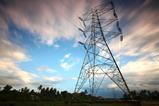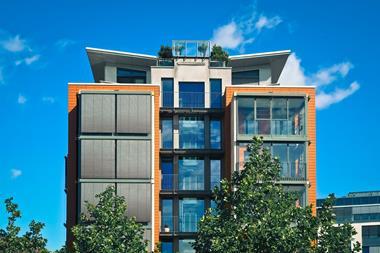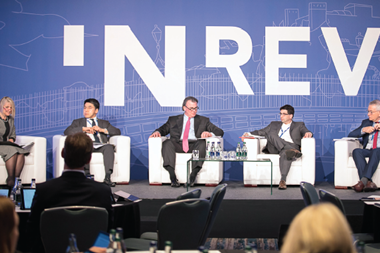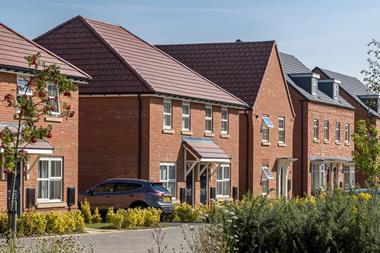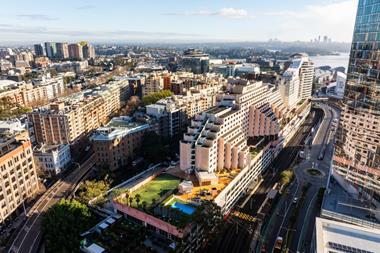Non-listed real estate fundraising fell to a minimum of €117bn in 2023, down more than 50% from 2022’s €246bn, representing the lowest volume since 2015, it was revealed at the annual conference of the European Association for Investors in Non-listed Real Estate Vehicles (INREV) in Berlin.
The Capital Raising Survey 2024, published with INREV’s Asian and North American counterparts ANREV and NCREIF, revealed a fall in activity across all global regions, a performance most likely driven by a combination of low transaction volumes and negative returns, “set against a backdrop of macro-economic headwinds and geopolitical uncertainty”.
Iryna Pylypchuk, director of research and market information at INREV, said: “The drop in capital raised in 2023 was undeniably dramatic, but will likely come as little surprise to most market participants.
“These results are a direct consequence of weak underlying markets and a wait-and-see attitude prevalent among investors, following six consecutive quarters of negative performance and the ongoing pricing discovery.”
The report revealed that a quarter of the 83 fund managers who contributed to the survey did not raise any capital last year, citing a lack of suitable product as the main reason. But the fact that 86% of the capital raised in 2023 is yet to be invested undoubtedly affected their ability and willingness to raise more equity.
European investors reclaimed the top spot for real estate investment in 2023, contributing 38% of all raised equity. However, this remains below their historical average of 44%. Asia-Pacific investors, previously the leading source in 2022, followed closely with 34%, while North America contributed 28%.
European investors dominated their domestic market, contributing 79% of capital raised for European real estate strategies during the period. Investors from Asia-Pacific were second, but their contribution dipped to 14%, down from a peak of 21% in 2022. North American investors’ involvement in European strategies also took a hit, dropping to just 6% in 2023.
For global strategies, Asia-Pacific investors took the lead with 43% of the total capital raised. European investors followed with 31%, while North American investors saw a 32% decline compared to 2022, contributing just 26%, according to the report.
At 39%, non-listed funds attracted the lion’s share of capital raised globally in 2023, followed by non-listed debt products with 24%. “This is one of the highest shares for debt products since the inception of the survey, reflecting investors’ continued appetite for the attractive risk-return profile of this slice of the non-listed asset class,” INREV said.
Conversely, the direct investing through separate accounts fell to 18% – its lowest share since 2020. European investors showed a particularly strong preference for non-listed debt products during 2023, representing almost one-third of the capital invested, according to the report.
Within European strategies, non-listed debt vehicles were particularly favoured in relation to alternative sectors. They accounted for 81% of the capital destined for the European residential sector in 2023.
Pylypchuk said: “The good news is that the substantial amount of dry powder accumulated over the last few years should be ready for deployment the minute the first interest-rate cuts are announced, and marker participants feel the end of the cycle is nearing.
“Consequently, there’s potential for the capital raising environment to return to a healthier state relatively quickly. However, it’s unlikely to reach the dizzying heights of the circa €250bn levels witnessed in 2021 and 2022, anytime soon.”
To read the latest IPE Real Assets magazine click here.








